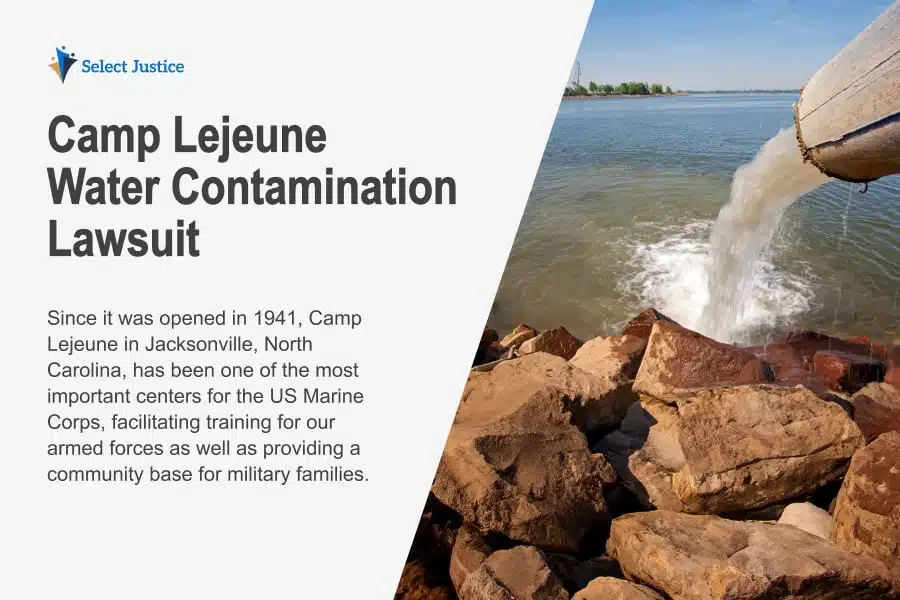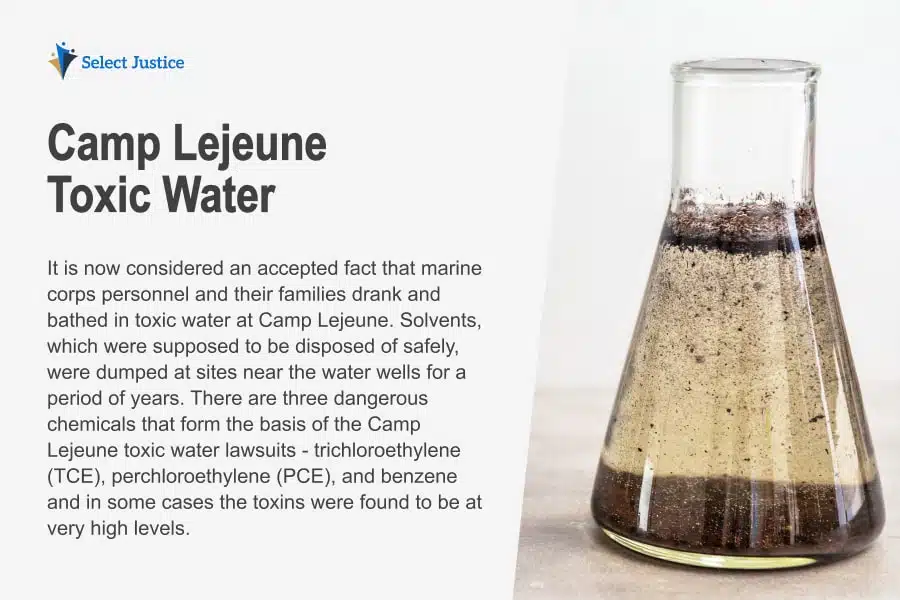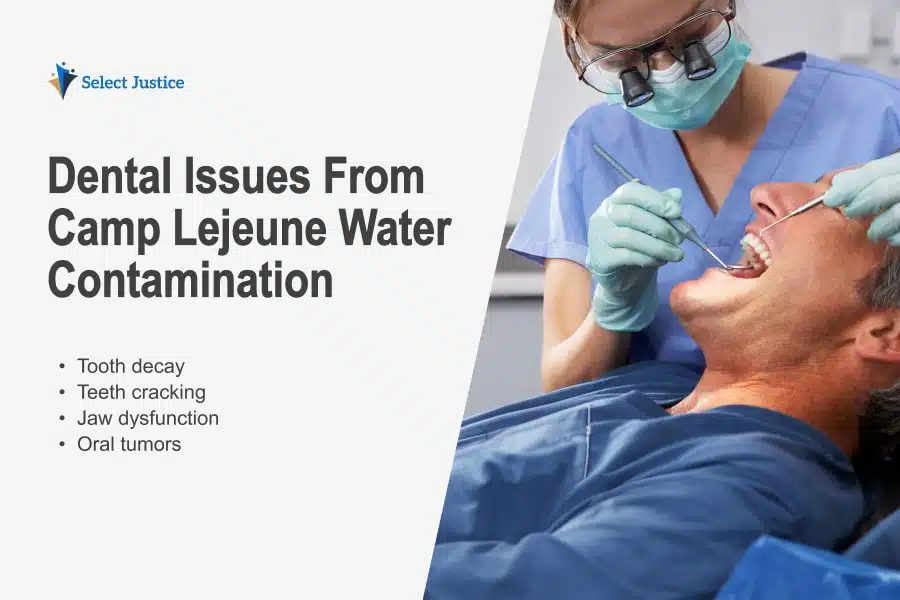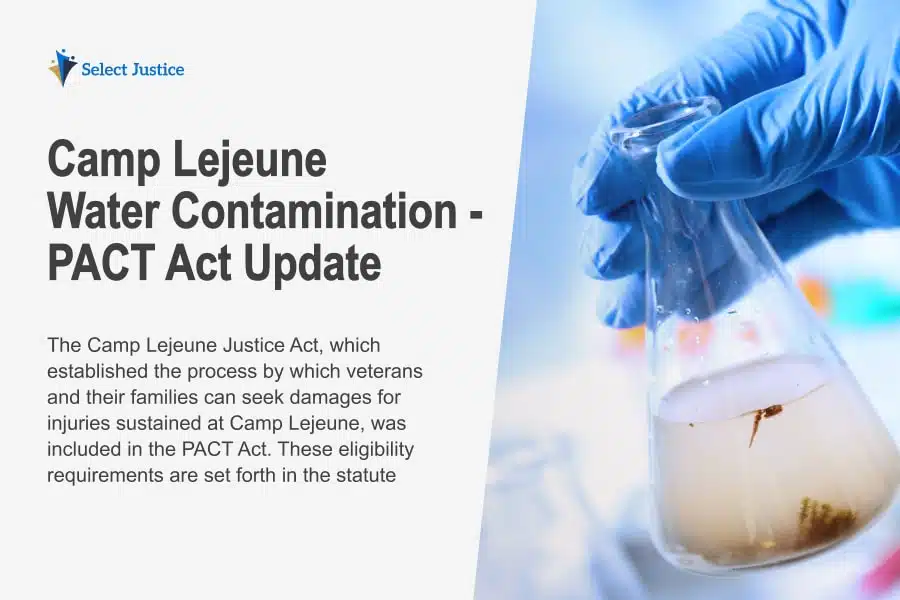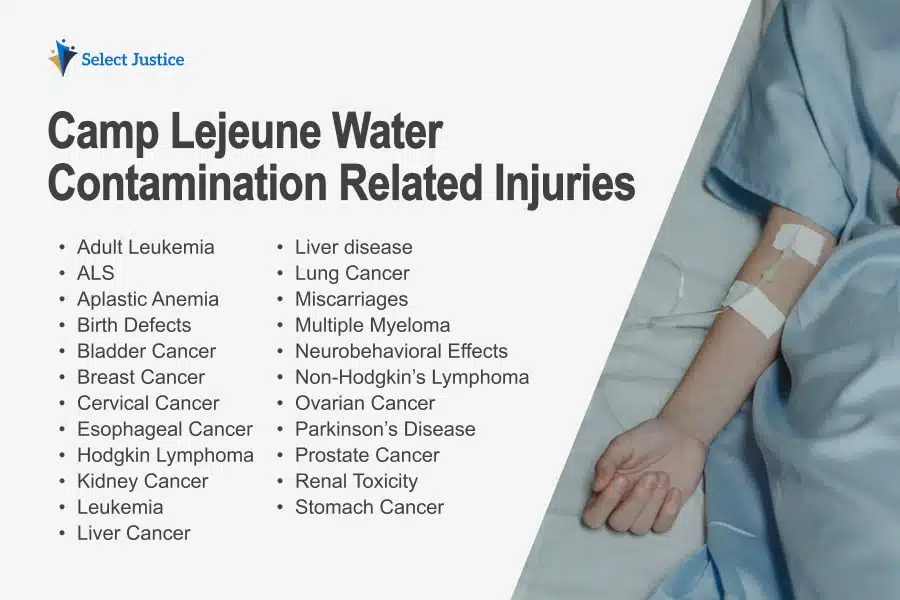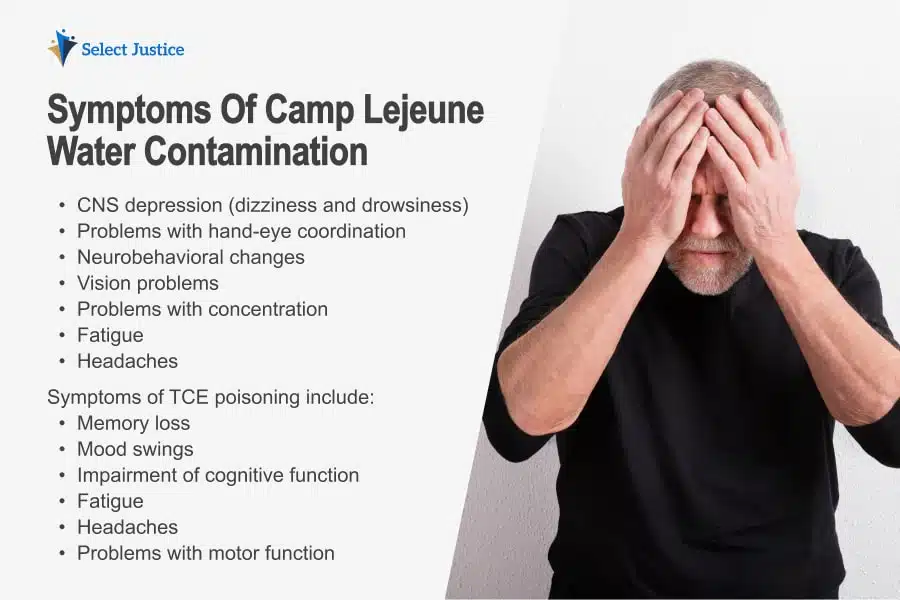Since Camp Lejeune’s opening 1941, the Jacksonville, North Carolina Marine Corps base has been cemented as a vital training facility for the United States armed forces. The base is also a home for many military families.
For a period of 34 years (1953-1987) the water at the base was contaminated with several dangerous toxins, some of which can cause cancer and lead to death. Our military personnel and their families were unknowingly being poisoned by the water at Camp Lejeune for more than three decades.
Veterans and their families want justice. The Camp Lejeune water lawsuit is complicated for a variety of reasons, including the statute of limitations, the immunity afforded to the US Government for military injuries, and even for political reasons. This doesn’t change the drive of affected families to get well-deserved compensation for those who were affected—or even killed—by the contaminated water at Camp Lejeune.
Solvents, which were supposed to be disposed of safely, were dumped at sites near the Camp Lejeune water wells for a period of years. Three dangerous chemicals form the basis of the Camp Lejeune toxic water lawsuits: trichloroethylene (TCE), perchloroethylene (PCE), and benzene. In some cases, these toxins were found in the Camp Lejeune water supply at alarmingly high levels.
One sample showed that TCE levels were at 1,400 ppb (parts per billion), whereas federal law states that it should be no greater than 5 ppb. Active duty service members, veterans, military spouses, and children could have been drinking water containing TCE levels 280 times greater than what is allowed by law. TCE is known to cause several types of cancer. The chemical is listed as a reasonably anticipated carcinogen, meaning it is likely to cause cancer in humans. Benzene is a Group 1 carcinogen, meaning it is a definite cause of human cancers.
February 1, 2025
More than 2,000 lawsuits, half-million administrative claims under Camp Lejeune Justice Act.
- January 1, 2025 - Camp Lejeune victims dealt setback in Congress.
- December 1, 2024 - Congress needs to act faster on behalf of Camp Lejeune water victims.
- November 1, 2024 - Jessie Hoerman, sought to prove her grandfather was poisoned at Camp Lejeune, said an archive of historical materials she has collected could help many bolster their challenging water contamination cases.
- October 1, 2024 - Tillis, Colleagues Introduce Legislation to Eliminate Barriers to Justice for Camp Lejeune Victims
- September 1. 2024 - More than 500,000 claims made by people who were exposed to toxic water at Camp Lejeune.
- August 1, 2024 - Camp Lejeune toxic water judges appoint settlement masters to speed up settlement process; 1851 lawsuits filed.
- July 1, 2024 - Bills seek to speed up lawsuits over Camp Lejeune contamination.
- June 1, 2024 - Time running out to file claim in Camp LeJeune Justice Act.
- May 1, 2024 - Deadline approaching for Camp Lejeune Act.
- April 1, 2024 - CDC study: Camp Lejeune water contamination tied to a range of cancers.
- March 1, 2024 - Veterans of Camp Lejeune turn to Congress for justice in jury trials.
February 14, 2024 -The Camp Lejeune toxic water victims lose their bid for jury trials.
- US attorneys say that bench trials will speed up the claims process.
- Veterans, family members, and base workers have filed about 160,000 claims.
- February 1, 2024 - Quick Camp Lejeune Payout Unlikely for Most:
Lawsuits poised to surge after filing deadline
More than 40% of claimants cite 2 or more illnesses - January 19, 2024 - Camp Lejeune Plaintiff Leadership Group Opposes U.S. Government's Efforts to Amend CMO.
- January 1, 2024 - Camp Lejeune Victims' Lawyers Fight Bid to Ban Jury Trials.
- December 1, 2023 - Veterans advocates praise legal fee caps on Camp Lejeune Water Lawsuits.
The fight for justice on behalf of the veterans and families injured by poisoned water at Camp Lejeune has been going on for a long time, with elements of the lawsuits and other compensation claims even reaching the Supreme Court. But there are issues that complicate the case. For instance, there is the question of “sovereign immunity,” barring (in some situations) veterans from suing the Federal Government. There are also issues with the statute of limitations. But all of these are being challenged in the courts. In 2022, perhaps the most important development has been the Camp Lejeune Justice Act, a bill that was introduced in Congress in March 2021. The piece of legislation effectively opens the way for veterans to pursue litigation for injuries sustained by Camp Lejeune toxic drinking water, as well as to provide other provisos to give vets better access to disability claims and other benefits. In terms of the Camp Lejeune water lawsuits 2022, the bill (which still has to be signed into law) has caused specialist Camp Lejeune lawyers to ask veterans and their families to come forward to begin compensation claims.
Camp Lejeune residents have suffered from dental problems related to water contamination.
Dental symptoms related to contaminated water at Camp Lejeune include:
- Tooth decay and broken teeth:Tooth decay is caused by acid being produced from plaque that builds up on your teeth. Plaque can build up on your teeth and cause further problems such as tooth decay, gum disease, or dental caries. Some people affected by the contaminated water at Camp Lejeune also experienced breakage of their teeth.
- Jaw dysfunction:Jaw dysfunction occurs when the jaw muscles and ligaments become inflamed. This condition can be acute or chronic, and the related pain can range from mild to severe.Oral tumors: Oral tumors are persistent, unexplained lumps in the neck or mouth that do not go away. This condition can result in unstable sockets or loose teeth that do not heal after extractions, as well as an unexplained, persistent feeling of numbness on the lips or tongue.
The Camp Lejeune Justice Act, which established the process by which veterans and their families can seek damages for injuries sustained at Camp Lejeune, was included in the PACT Act.
Eligibility requirements include:
- For at least 30 days between Dec. 31, 1987 and Aug. 1, 1953, you must have resided, worked or been otherwise exposed (including in-utero exposure) at Camp Lejeune, Marine Corps Air Station New River. The 30 day requirement does not apply consecutively. Additionally, the family members of deceased veterans may be eligible to file a claim for their loved one.
- You developed a life-altering condition as a result of exposure to contaminated water at Camp Lejeune.
- You weren’t dishonorably discharged from the military.
To potentially qualify, You must file an administrative claim with Navy Judge Advocate General by Aug. 10, 2024 (two year period from the date of enactment). If you believe you or members of your family have experienced negative health effects as a result of exposure to contaminated water at Camp Lejeune, it’s important that you talk with a Camp Lejeune injury lawyer as soon as possible to ensure that you’re able to file your claim before the deadline.
A wide range of injuries occurred in people who were exposed to the toxic water at Camp Lejeune. There are many symptoms that can be indicative of exposure to contaminated water.
Two of the major chemicals found in the water at Camp Lejeune were TCE and PCE, both of which are solvents.
Symptoms following exposure to TCE can include:
- Memory loss
- Mood swings
- Impaired cognitive functioning
- Fatigue
- Headaches
- Motor function issues
Symptoms following exposure to PCE can include:
- Central nervous system depression (dizziness and drowsiness)
- Hand-eye coordination problems
- Neurobehavioral issues
- Vision problems
- Difficulty concentrating
- Fatigue
- Headaches
While many people who were exposed to the toxic water at Camp Lejeune experienced some of the symptoms above, this is by no means an exhaustive list. If you were exposed to the water at Camp Lejeune between 1953 and 1987 and have lived with a health issue that may be related to the contaminated water, it’s important that you reach out right away to speak with a case specialist who can help to determine whether you may be entitled to compensation.
Some vets have claimed that exposure to the water at Camp Lejeune resulted in water contamination has caused diabetes. While diabetes is not currently yet on the list of Camp Lejeune-caused illnesses recognized by the Department of Veteran Affairs, many vets have cited diabetes in their compensation claims.
It’s worth noting that the list of illnesses covered in Camp Lejeune compensation claims could expand, so it is possible that veterans and their families could receive a settlement if they were diagnosed with a form of diabetes after spending time being based at Camp Lejeune between the years 1953 and-1987.
The VA (Dept of Veterans Affairs) has established a list of Camp Lejeune presumptive conditions for those who spent time at the camp between 1953 and1987. A presumptive condition or injury means there is little to no legal burden on the claimant to discover whether the injury was caused by an unrelated issue. For example, if a veteran developed kidney cancer after spending time at Camp Lejeune, it is legally presumed that the contaminated water caused the kidney cancer. Of course, there are certain criteria that the veteran or family member must meet, including spending at least 30 days (consecutive or nonconsecutive) at Camp Lejeune within the 34-year period when the water was known to be contaminated.
As mentioned, the Camp Lejeune case is a special case, with exceptional parameters that should be handled only by law firms that have expertise in this area of litigation. Expert Camp Lejeune lawyers have been covering the litigation for several years, and are asking for claimants to come forward to pursue compensation. These Camp Lejeune lawsuit lawyers are experienced in the unique parameters of military veterans’ personal injury claims, as well as the exceptional circumstances around the Camp Lejeune case.
There is a concerted effort from veterans, their families, Camp Lejeune lawyers, and even some politicians to secure financial compensation for those affected by toxic water at the military base. As mentioned, many external factors distinguish the Camp Lejeune compensation lawsuits from traditional lawsuits. There is a broad consensus that a settlement should be secured for those who suffered injuries, chronic illness, and death.
The amount of money paid out in the Camp Lejeune compensation lawsuits will depend on several factors, including the type of injury or illness sustained the impact that issue had on the person’s quality of life.
There are other factors that will impact Camp Lejeune payout amounts, including the passage of the Camp Lejeune Justice Act through the United States Congress. Personal injury claims against the government for military personnel are not like traditional personal injury claims, as the government is afforded certain legal protections. Experts agree, however, that it’s highly likely that the door will eventually be open for those injured to seek substantial payouts.
Camp Lejeune toxic water survivors have been very active in lobbying for justice. Survivor groups made up of veterans, families who have lost loved ones, and other advocates for justice, have pressured the government and military to do more. There have been certain measures put in place to give vets some sort of compensation, including payment of medical costs for presumptive injuries. However, critics believe that not enough has been done. This is why Camp Lejeune survivor lawsuits could work to help the men, women, and children who were injured or died due to toxic water exposure receive additional justice than what has been offered thus far by the government.
How do I file a claim for an injury or illness related to the Camp Lejeune water contamination case?
Fill out a free evaluation form to see if you qualify to join the toxic water Camp Lejeune lawsuits. After that, you can speak with a personal injury lawyer to initiate your claim.
What are the symptoms of the Camp Lejeune water contamination?
A broad range of serious illnesses and injuries have been linked to toxic water contamination at Camp Lejeune. Those who have been exposed to toxins like TCE and PCE might develop symptoms like mood swings, fatigue, dizziness, behavioral changes, and motor issues. This is by no means an exhaustive list, and symptoms can vary from person to person. If you have any concerns, you should contact your doctor right away.
What diseases are associated with Camp Lejeune water contamination?
Several serious diseases have been linked to Camp Lejeune toxic water, including many types of cancer.
What was in the drinking water at Camp Lejeune?
A range of toxic chemicals were found in the water at Camp Lejeune. Most worryingly,high levels of trichloroethylene (TCE) and perchloroethylene (PCE) were discovered. Both of these chemicals are very dangerous when ingested by humans.
What is the Camp Lejeune Justice Act?
The Camp Lejeune Justice Act was signed into law by President Biden in 2022, opening the way for vets and their families to file lawsuits against the government for Camp Lejeune toxic water exposure. The bill also contains other measures that help those affected get compensation.
Is Camp Lejeune still contaminated?
Technically speaking, yes, Camp Lejeune water wells are still contaminated. Although, they are no longer used by the military for drinking or bathing.
Is Camp Lejeune shutting down?
No. It remains one of the most important military training bases in the United States.
What is cognitive and neurobehavioral dysfunction?
Cognitive problems refer to a range of issues that have to do with the way the brain functions, including issues with learning, memory, and comprehension. Neurobehavioral issues also involve brain functioning but are easier to observe, including issues like difficulty with motor skills or struggles to control anger.
How long has Camp Lejeune been around?
Camp Lejeune was opened in 1941.

Medical Malpractice
Dangerous & Defective Products
Personal Injury Lawsuits
DUI Lawyer Support
Employer Negligence
Mass Tort Lawsuits
Top Class Action Lawsuits
Expertise
Reviews
FAQ
